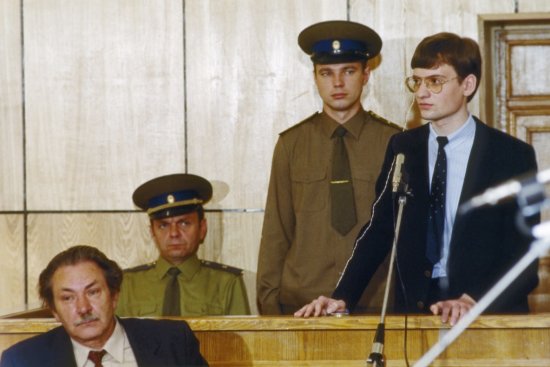
Mathias Rust caused a stir with a Cold War stunt
It’s been a rough couple of months for drone enthusiasts in the U.S. capital. In January, a drone manufacturer decided to disable its devices within the boundaries of downtown Washington, D.C., after a remote-controlled drone crashed on the White House lawn. And yet, earlier this month, another man was arrested for trying to use a drone too near President Obama’s residence.
This drone dilemma may seem like a singularly modern problem—after all, the world is only just confronting how to maintain safety and privacy in a world where anyone can operate one of the aircraft. And yet, these ill-fated aviators have a precursor who predates the availability of recreational drones.
His name is Mathias Rust, and it was on May 28, 1987, that he landed a plane in Moscow’s Red Square. His story, as reported by TIME the following week, sounds like the Cold War, pre-drone version of the stories that have come out of Washington in recent months:
[time-brightcove not-tgx=”true”]Tourists and Muscovites strolling through Red Square that evening looked up to see a small single-engine plane coming in low from the south. It circled the great plaza, barely clearing the red brick walls of the Kremlin and buzzing the Lenin Mausoleum before finally touching down. At about 7:30 p.m. the little craft came to rest on the cobblestones behind onion-domed St. Basil’s Cathedral. Bystanders scattered. Police gaped in astonishment. Official black sedans sped to the spot.
Out of the plane, a blue-and-white Cessna Skyhawk 172, stepped Mathias Rust, 19, a computer operator and amateur pilot from Hamburg, West Germany. While the authorities debated what to do with him, Rust coolly signed autographs for the crowd, adding the words HAMBURG-MOSCOW. Shortly afterward he was taken away by police. Said a 24-year-old Muscovite who saw the pilot step from his craft: ”People did not know what had happened. Something this unusual does not happen every day.”
But, while drone landings at the White House have so far been perceived as stunts or mistakes, Rust’s flight had larger implications.
Until that day, the world thought that Russia’s tightly guarded airspace was effectively impregnable. That a teenager was able to fly hundreds of miles from Helsinki to Moscow without encountering that defense revealed that the Soviet military did not have as tight a hold on air security as had been believed. Meanwhile, on the other side of the Iron Curtain, Rust’s West German compatriots worried that his stunt, which seemed funny at first, might imperil the fragile relationships at the heart of the Cold War.
Rust himself said that he decided to undertake the flight in order to speak to Russians—but that summer he got more than he bargained for, when he was charged with crimes including “malicious hooliganism” and eventually sentenced to four years in a labor camp, of which he served about one.
“Rust again told reporters that his flight across 500 miles of tightly defended Soviet airspace had been part of a campaign for improved East-West relations. ”It was worth my freedom, my liberty,’” TIME noted on the occasion of his early release. “He admitted, however, that it was ‘not responsible’ and that he would not do it again.”
Read the full story from 1987, here in the TIME Vault: Welcome to Moscow
Drone Country: See America From Above















